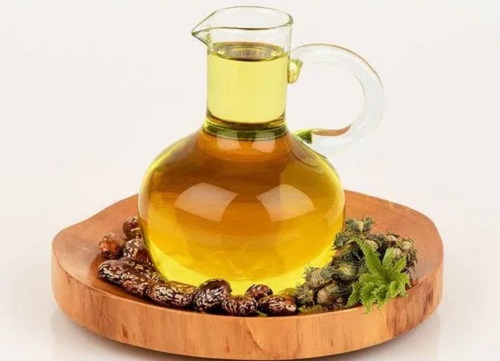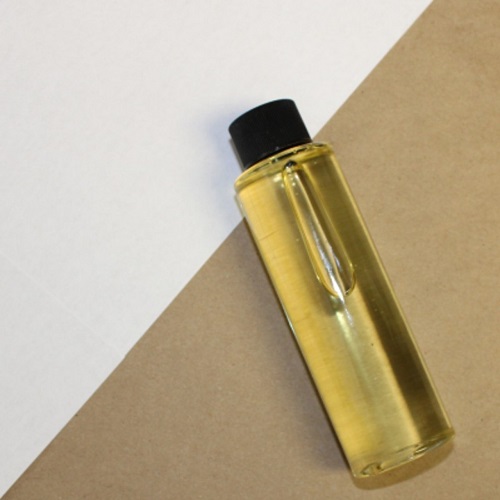Confused about choosing between Castor Oil in Glass Bottle or Plastic Bottle? This comprehensive guide has your back!
Castor oil, a versatile and therapeutic oil, is widely used for various purposes, from skincare to hair treatments. The question often arises which is better—Castor Oil in Glass Bottle or Plastic Bottle?” To maintain its efficacy and longevity, the packaging matters. In this article, we delve into which is the optimal choice.
Why Packaging Matters for Castor Oil?
When it comes to storing oils, exposure to light, air, and contaminants can degrade the oil’s quality. How castor oil is stored can influence its potency and shelf life.
- Protection from Contamination: Castor oil is a natural product that can degrade if exposed to contaminants. Proper packaging ensures it remains free from dust, microbes, and other foreign particles.
- Preservation of Quality: Exposure to light, especially UV rays, can degrade the quality of castor oil. Dark or opaque packaging helps preserve its beneficial properties by shielding it from harmful light.
- Interaction with the Container: Certain materials can react with the oil, altering its composition and potentially reducing its benefits.
Castor Oil in Glass Bottle—The Benefits
Glass is a non-reactive material, meaning it won’t leach chemicals into the oil, maintaining the oil’s purity. Here are the advantages of storing castor oil in a glass bottle:
- Purity Maintenance: Unlike some plastic containers, glass doesn’t contain chemicals that might leach into the oil, ensuring the castor oil remains pure and uncontaminated.
- UV Protection: Castor oil can be stored in dark glass bottles, which shield the oil from UV rays. This is why many experts suggest that castor oil should be kept in a dark glass bottle. This protection ensures that the oil remains effective for longer.
- Temperature Resilience: Glass bottles can handle temperature changes better than plastic. If you need to warm your castor oil slightly for an application, a glass bottle can safely be placed in warm water.
- Eco-Friendly: Glass production tends to have a longer life cycle than plastics, making it a sustainable option in the longer run, especially when considering the negative environmental impacts of plastic waste.
Learn about Hexane Content in Castor Oil here
Castor Oil in Plastic Bottle—The Concerns
Plastic bottles are lightweight and shatter-proof, making them a popular choice for many manufacturers. However, there are concerns when using them for oil storage:
- Chemical Leaching: Some plastics can leach chemicals, such as BPA (Bisphenol A), into the oil over time, especially when exposed to heat. This contamination can affect the oil’s quality and safety.
- Light Exposure: Most plastic bottles don’t provide adequate protection against UV light, which can degrade the quality of castor oil.
- Odor Retention: Some plastics can absorb and retain odors. If the bottle is reused or stored in places with strong scents, the plastic may retain those odors, which can then affect the castor oil’s natural scent.
- Permeability: Plastic is more permeable than glass. Over time, it can allow external odors, contaminants, or even small amounts of oxygen to permeate, which can degrade the oil’s quality.
The Verdict
Given the benefits of glass packaging, it’s clear that the best choice for preserving the quality of castor oil is to store it in glass bottles, preferably dark ones. This ensures the oil’s potency and beneficial properties are retained for longer.
However, if you do buy castor oil in a plastic bottle, it’s wise to transfer it to a glass container and store it in a cool, dark place to preserve its quality.
Learn about the Side Effects of Castor Oil here
Key Takeaways
Should castor oil be in a glass bottle? Absolutely. The benefits of storing castor oil in glass, particularly dark glass, far outweigh those of plastic. When purchasing, look for brands that prioritize the longevity and efficacy of their products by choosing appropriate packaging.
FAQs
1. Why is it Important to Store Castor Oil in a Dark Glass Bottle?
Storing castor oil in a dark glass bottle ensures protection from UV rays, which can degrade the quality of the oil. Dark glass bottles help in preserving the potency and effectiveness of the oil for longer durations.
2. Can I Transfer my Castor Oil from a Plastic Bottle to a Glass One?
Yes, if you have purchased castor oil in a plastic bottle, it’s a good idea to transfer it to a glass container, preferably a dark one. This will enhance its shelf life and maintain its beneficial properties.
3. Do Plastic Bottles Alter the Composition of Castor Oil?
Certain plastics can potentially leach chemicals into the oil, especially when exposed to fluctuating temperatures. This could alter the composition and reduce the efficacy of the oil.
4. How does Light Exposure Affect Castor Oil?
Exposure to light can cause the oil to oxidize, which may lead to reduced efficacy. Oxidized oils can lose some of their beneficial properties and may not offer the same benefits as those stored properly.
5. Are There Any Other Factors to Consider When Storing Castor Oil?
Apart from light, exposure to air can also degrade the quality of the oil. Ensure that the bottle is tightly sealed. Also, store the oil in a cool, dark place, away from direct sunlight and heat sources.
6. Does the Type of Bottle Affect the Price of Castor Oil?
While glass bottles, especially dark glass, might be slightly more expensive than plastic due to their production and shipping costs, the focus should be on the quality of the product. In many cases, brands using glass packaging emphasize the longevity and efficacy of their oil.
7. Is There any Difference in the Application Process of Castor Oil from Glass and Plastic bottles?
No, the application process remains the same. However, the quality and effectiveness of the oil may vary depending on the storage medium, with glass bottles generally preserving the oil’s properties better.




